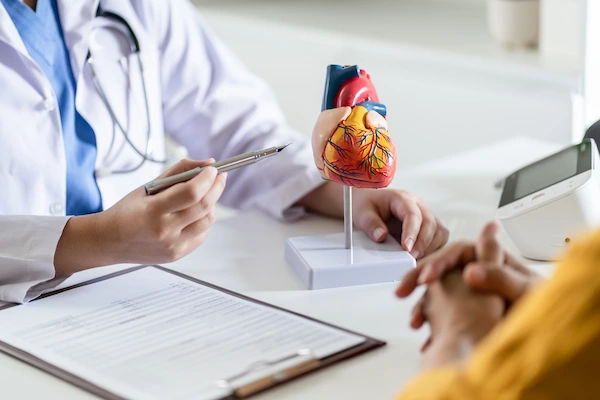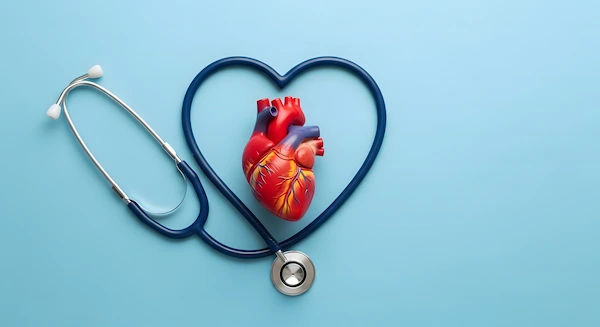- male
- 45 Years
- 22/01/2025
How can I lower my diastolic blood pressure? My systolic blood pressure is usually normal, but my diastolic is often high. Are there any ways to bring it down naturally without medication? It's usually around 12090.
Answered by 1 Apollo Doctors
- No its normal feeling
- Bp is normal
No need to worry
Dr. Dr Khaleel Suggests...
Consult a Cardiologist
Answered 04/07/2025
0
0


Ask Apollo
AI powered Health Chatbot
-
Understanding Diastolic Blood Pressure
- Diastolic blood pressure is the pressure in your arteries when the heart rests between beats. High diastolic pressure can increase the risk of heart disease.
-
Lifestyle Modifications to Lower Diastolic BP Naturally
- Dietary Changes: Reduce salt intake and increase foods rich in potassium like bananas and spinach.
- Physical Activity: Engage in at least 150 minutes of moderate exercise weekly, such as brisk walking or cycling.
- Weight Management: Aim for a healthy weight through balanced diet and regular exercise.
- Stress Reduction: Practice mindfulness, meditation, or yoga to manage stress.
-
Avoiding Factors That Raise Diastolic BP
- Limit alcohol consumption and avoid tobacco use.
- Manage caffeine intake by reducing coffee and energy drinks.
-
Monitoring and When to Seek Medical Advice
- Regularly monitor your blood pressure at home.
- Seek medical advice if you experience symptoms like severe headaches, chest pain, or shortness of breath.
-
Relevant Medical Specialties
- Consult a cardiologist or general physician for personalized management of blood pressure.
-
Additional Natural Supportive Measures
- Ensure adequate sleep and stay hydrated.
- Consider supplements like omega-3 fatty acids, but consult a healthcare provider first.
Recommended next steps
Consult a Cardiologist or Consult a General Physician/ Internal Medicine Specialist
Answered 20/08/2025
0
0
More Cardiology Health Queries
View allI'm concerned about the dosage of Neurobion Forte tablets. How long should I take them after experiencing bleeding and a drop in hemoglobin levels following an angioplasty?
atleast 3-6 months tablet should be consumed.
Answered by 1 Apollo Doctors
What could it mean if Sorbitrate 5 tastes really bitter when you keep it under your tongue? My relative is dealing with hypertension and I'm a bit worried.
When sorbitrate 5 feels really bitter when you keep it under your tongue, it could be due to the medication coming into contact with taste buds. This is a common side effect of sublingual medications. To reduce the bitter taste, you can try drinking a small amount of water before taking the medication. Additionally, ensure that the medication is placed directly under the tongue and allowed to dissolve completely. If the bitterness persists or if there are any other concerning symptoms, please consult your healthcare provider for further evaluation.
Answered by 1 Apollo Doctors
Is sleeping good for high blood pressure?
People who sleep six hours or less may have steeper increases in blood pressure. If you already have high blood pressure, not sleeping well may make your blood pressure worse. It's thought that sleep helps your body control hormones needed to regulate stress and metabolism.
Answered by 1 Apollo Doctors
Disclaimer: Answers on Apollo 247 are not intended to replace your doctor advice. Always seek help of a professional doctor in case of an medical emergency or ailment.




